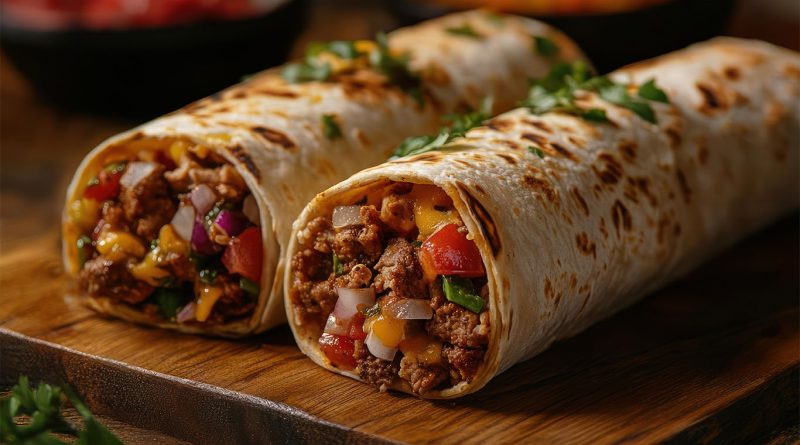Moe’s and Chipotle expand internationally as tex‑mex grows worldwide
Subscribe to our free newsletter today to keep up to date with the latest food industry news.
Tex Mex cuisine finds itself at a global inflection point. Two of the United States’ most recognizable fast casual brands Moe’s Southwest Grill and Chipotle Mexican Grill have announced new international growth plans targeting Asia and the Indian subcontinent. These moves are not only strategic expansions but also indicators of shifting global tastes and rising competition in the international food sector.
Shifting appetites and market signals
Consumer preferences across major global markets continue to lean toward bolder flavors and more convenient formats. Tex Mex, with its fast casual setup and strong spice profiles, fits squarely within that space.
Market intelligence points to increased demand for customizable meals and high flavor experiences, especially among younger consumers. In Europe and Asia, diners are increasingly open to street food formats and global mashups. For Chipotle and Moe’s, this is a timely opportunity to extend their relevance outside the US.
Moe’s will enter India under the name Moe’s Casa Mexicana, backed by a 45 unit master franchise agreement with operator Unify Works. The new concept will incorporate preset menu builds rather than the highly customizable format used in the US. This strategy stems from consumer research indicating that Indian customers prefer fewer decisions at the counter. Moe’s will also localize the menu by introducing vegetarian options such as paneer and potato, in addition to maintaining staples like burritos and tacos. The rollout will span a mix of formats including full service, inline and kiosk based operations.
Chipotle, meanwhile, has formed a joint venture with SPC Group, a South Korean food conglomerate, to establish a footprint in Singapore and South Korea. These markets were selected based on brand awareness, dining culture and the high penetration of global food chains. The company stated that demand for real food prepared quickly aligns with its core value proposition. With SPC’s experience scaling international food brands, Chipotle sees a pathway to strong initial adoption and a longer term regional play.
Effects on the food landscape
The Tex Mex expansion signals more than commercial growth. It reflects a broader influence of American regional cuisines on international dining scenes. By entering markets where local food traditions are deeply rooted, both Moe’s and Chipotle are inserting a new culinary option into already competitive environments. Their presence may encourage local operators to innovate or reinterpret global formats using regional ingredients.
In India, a growing middle class and digital food delivery ecosystem provide a fertile ground for new cuisine categories. For Moe’s, success will depend on how well it integrates into existing consumption habits. Offering vegetarian variants is a necessary step but so is pricing, portioning and real estate choice. In South Korea and Singapore, Chipotle faces sophisticated diners familiar with international offerings and an appetite for speed and quality. Competitors in the region have already demonstrated strong brand loyalty and effective localization.
Challenges ahead
The international fast casual sector is dynamic but not without hurdles. Localization requires operational flexibility and a commitment to sourcing ingredients that match both taste expectations and brand promises. For Chipotle, that may include securing avocados, beans and other fresh inputs at a sustainable cost. For Moe’s, aligning with Indian regulatory frameworks and navigating regional market diversity will test the scalability of the brand.
Supply chain resilience is another critical factor. Both brands must maintain consistency without over centralizing control, which could hamper responsiveness. Labour dynamics, especially in food prep and customer service, will also influence how well the core brand experience translates abroad.
These moves by Moe’s and Chipotle are part of a larger trend in which American chains are betting on exportable food formats that prioritize quality, speed and a degree of personalization. Tex Mex, long a staple of US dining culture, is now being pitched to a wider world not just as a novelty but as a viable category in global foodservice.
As new locations open in the coming months, the real test will not be whether international customers are curious but whether they come back.
Sources
